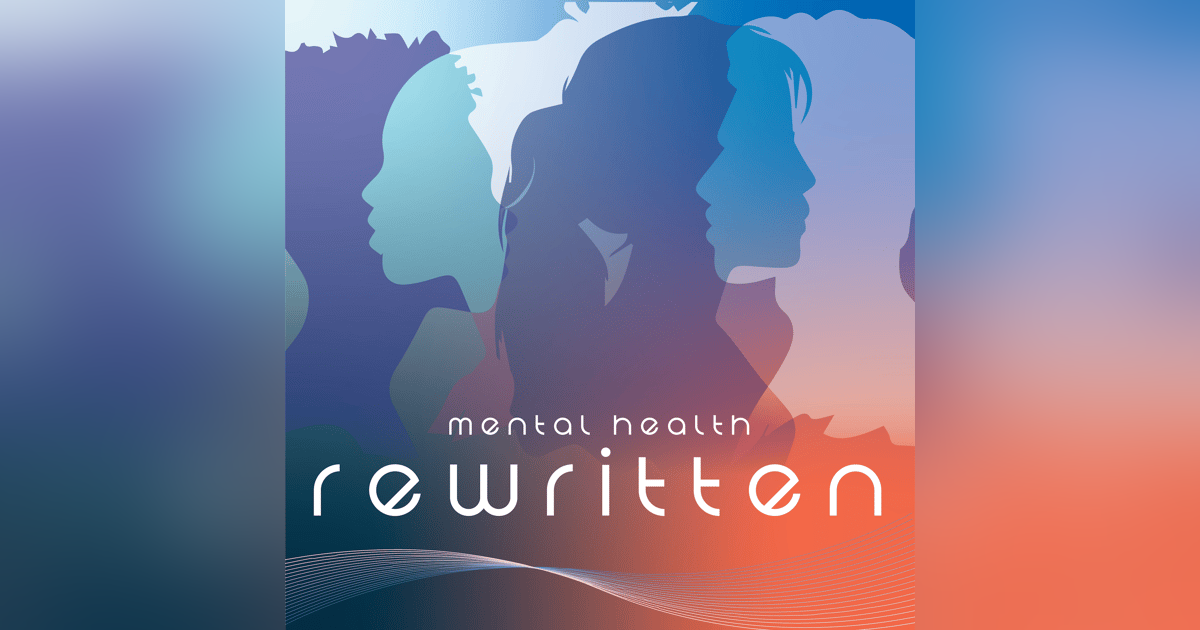Rewriting the Conversation Around Suicide

In this episode of Mental Health Rewritten, we tackle the subject of suicidal ideation with care, nuance, and urgency. Through a combination of real survivor stories, fictionalized scenes, clinical insight, and historical framing, host Dominic Lawson guides listeners through what it means to live on the edge of despair — and what it takes to survive it.
We hear the stories of:
-
Nia, a high-functioning professional whose emotional unraveling is invisible until it’s too late.
-
Ashley-Lauren, a survivor navigating abuse, chronic illness, and a suicide attempt that ultimately catalyzed her healing.
-
Sean, a veteran who faced combat trauma, alcoholism, and stigma in the military before becoming a suicide awareness trainer.
-
Vernon, a comedian whose laughter masks a legacy of trauma dating back to childhood — and who now saves lives one conversation at a time.
Clinician Tina offers expert insight on how we understand suicidal ideation, the brain’s escape mechanisms, and the ripple effects of silence. The episode reframes suicide not as a selfish act, but as a signal — one we must learn to recognize with compassion, not judgment.
🔍 Key Themes
-
The Diathesis-Stress Model as a framework for understanding breakdowns under compounded trauma
-
The language of suicide and why shifting from “committed suicide” to “died by suicide” matters
-
The invisibility of high-functioning depression and what it means to check on the “strong” ones
-
The interplay of PTSD, survivor’s guilt, and stigma within veteran communities
-
The power of disruption — how a call, a laugh, or a knock at the door can save a life
-
The legacy of silence, especially in BIPOC and male communities, where vulnerability is often punished or pathologized
Sources Cited
Global Suicide Statistics
-
World Health Organization. (2021). Suicide worldwide in 2019: Global health estimates. Geneva: WHO.
Youth Suicide Rankings
-
World Health Organization. (2021). Suicide: Key facts.
Terminology ("Died by Suicide" vs. "Committed Suicide")
-
American Foundation for Suicide Prevention. (n.d.). Recommended language about suicide.
-
National Alliance on Mental Illness. (n.d.). Suicide.
Great Depression Suicide Spike
-
Centers for Disease Control and Prevention (CDC). (1999). Historical Statistics on Suicide in the U.S., 1900–1999.
-
Liu, Y. (2004). Macroeconomic conditions and suicide rates in the United States. American Journal of Public Health, 94(5), 768–773.
Prevalence of Suicidal Ideation
-
Nock, M. K., Borges, G., Bromet, E. J., et al. (2008). Cross-national prevalence and risk factors for suicidal ideation, plans and attempts. The British Journal of Psychiatry, 192(2), 98–105.
Major Depressive Disorder (MDD) Diagnostic Criteria
-
American Psychiatric Association. (2013). Diagnostic and statistical manual of mental disorders (5th ed.) (DSM-5). Washington, DC: APA.Diathesis-Stress Model
-
Ingram, R. E., & Luxton, D. D. (2005). Vulnerability-Stress Models. In B. L. Hankin & J. R. Z. Abela (Eds.), Development of Psychopathology: A Vulnerability-Stress Perspective (pp. 32–46). SAGE Publications.
Veteran Suicide Data
-
U.S. Department of Veterans Affairs. (2023). 2023 National Veteran Suicide Prevention Annual Report.
Military & Digital Suicide Prevention Tools
-
U.S. Department of Veterans Affairs. (n.d.). REACH VET: Recovery Engagement and Coordination for Health – Veterans Enhanced Treatment.
-
O’Reilly, K. B. (2018, Oct). How AI is helping detect and prevent suicide. American Medical Association (AMA).
Murder-Suicide Case (Bay Area, 2024)
-
Gafni, M. & Baum, G. (2024, Feb 28). Former Meta employee kills wife, twin sons, self in San Mateo. Mercury News.
Domestic Violence and Suicide/Homicide Risk
-
Campbell, J. C., et al. (2003). Risk factors for femicide in abusive relationships: Results from a multisite case control study. American Journal of Public Health, 93(7), 1089–1097.
Listener Resources
If you or someone you know is struggling with suicidal thoughts, you are not alone. Help is available.
-
988 Suicide & Crisis Lifeline (USA) – Call or text 988 any time, day or night
https://988lifeline.org -
Veterans Crisis Line – Call 988, then press 1
https://www.veteranscrisisline.net -
Crisis Text Line – Text HOME to 741741
https://www.crisistextline.org -
The Trevor Project (LGBTQ+ youth support) – Call 1-866-488-7386 or text START to 678678
https://www.thetrevorproject.org -
National Alliance on Mental Illness (NAMI) – https://www.nami.org/help






